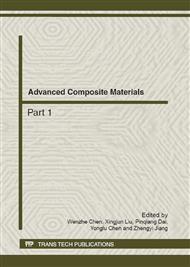p.398
p.402
p.408
p.413
p.417
p.421
p.426
p.431
p.435
The Development of the Free Shuttle Bus Policy in Hsichu, Taiwan
Abstract:
Abstract. When the citizens of Hsichu became concerned about their polluted atmosphere their thoughts centered on their mode of transportation. An investigation by the city government resulted in a study which showed that if more people rode buses for working, shopping, etc. this result would be fewer cars and scooters on the streets. In order for this to come about, the bus service needed to be improved. The SWOT model was implemented. SWOT stands for Strengths, Weaknesses, Opportunities and Threats. The satisfaction of the residents is now evident.
Info:
Periodical:
Pages:
417-420
Citation:
Online since:
February 2012
Authors:
Keywords:
Price:
Сopyright:
© 2012 Trans Tech Publications Ltd. All Rights Reserved
Share:
Citation:


